News in Brief
-
 Space
SpaceAstronomers just quintupled the number of known repeating fast radio bursts
A Canadian telescope spotted eight more repeating fast radio bursts. What causes these cryptic flashes of radio waves from deep space remains unclear.
-
 Humans
HumansEven without concussions, just one football season may damage players’ brains
A group of college football players underwent brain scans after a season of play. The results suggest the sport could impact neural signaling.
-
 Earth
EarthOne in 4 people lives in places at high risk of running out of water
An update to the Aqueduct Water Risk Atlas reveals that 17 countries withdraw more than 80 percent of water available yearly.
-
 Life
LifeWhy people with celiac disease suffer so soon after eating gluten
In people with celiac disease, some T cells release immune chemicals within hours of encountering gluten, triggering the fast onset of symptoms.
-
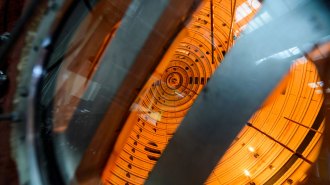 Astronomy
AstronomyIn a first, physicists re-created the sun’s spiraling solar wind in a lab
Some of the sun’s fundamental physics have been re-created with plasma inside a vacuum chamber
-
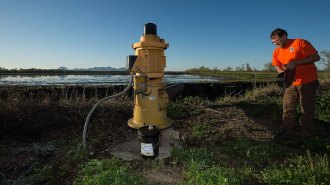 Earth
EarthU.S. wells are pumping up groundwater from increasing depths
Around the United States, groundwater wells are getting deeper in search of new sources of freshwater, a new study shows.
-
 Physics
PhysicsIncreased control over ions’ motions may help improve quantum computers
Scientists precisely manipulated the ion’s oscillations and energy levels, a key step toward building better quantum computers.
-
 Planetary Science
Planetary ScienceIndia’s first lunar lander is on its way to the moon
India’s Chandrayaan 2 mission just launched, hoping to become the first Indian spacecraft to land on the moon.
-
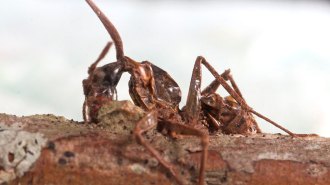 Animals
AnimalsA deadly fungus gives ‘zombie’ ants a case of lockjaw
Clues left on infected ant jaws may reveal how the ‘zombie-ant-fungus’ contracts ant muscles to make their death grip.
-
 Health & Medicine
Health & MedicineWHO declares a public health emergency over Congo’s Ebola outbreak
The yearlong Ebola outbreak in the Congo has been declared a public health emergency by the World Health Organization.
-
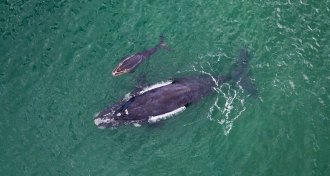 Animals
AnimalsSouthern right whale moms and calves may whisper to evade orcas
Mother-calf whale pairs call to each other quietly to stay in touch while avoiding attracting the attention of predators, a study suggests.
-
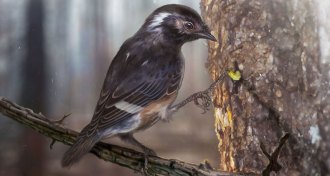 Paleontology
PaleontologyAn ancient bird found encased in amber had a bizarrely long toe
A 99-million-year-old fossil holds a bird with an oddly long toe, which might have helped the critter hook hard-to-reach dinners.